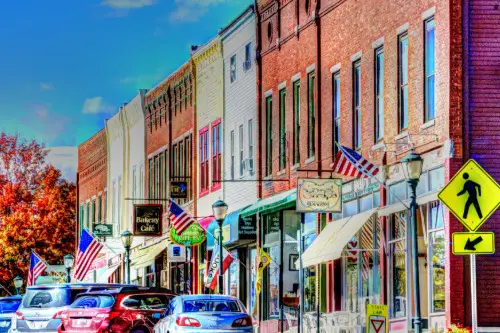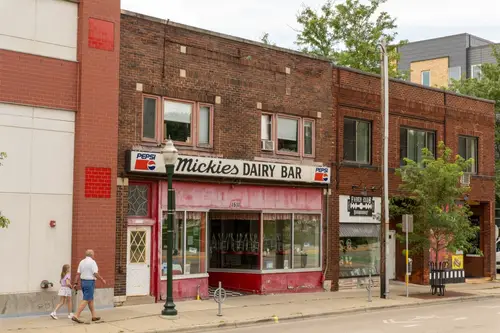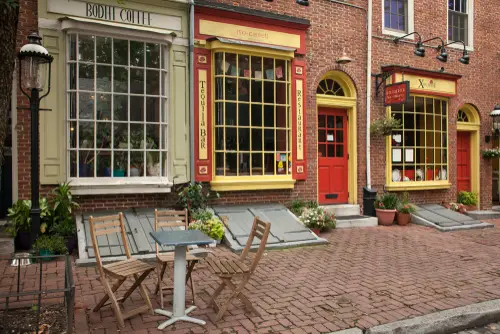1. Illinois

The property tax burden in Illinois is legendary—averaging around 1.8 % of home value. That’s often enough to make homeowners gasp at their annual bills and seriously consider whether it’s worth sticking around. With one of the highest effective rates in the nation, residents feel squeezed between property, income, and sales taxes. It’s no wonder some are seriously weighing whether to stay or simply walk away.
That high rate translates into hundreds—even thousands—of dollars extra each year, especially on more expensive homes. Many people have to juggle tough choices to cover all those taxes, and that mounting pressure can push them to the brink. I’ve heard more than a few homeowners mutter, “Is it even worth it anymore?” The strain is real, and for some, it’s the tipping point.
2. New Jersey

New Jersey easily holds the unwelcome title of highest property tax in the U.S., with median bills soaring past $9,400 in 2024. That sticker shock alone is enough to make anyone pause and reconsider homeownership here. Between high property values and tax rates, the financial pressure can feel relentless. It’s not surprising that some homeowners are entertaining the idea of leaving it all behind.
Every year that tax bill is a punch to the gut, and when it doesn’t come with matching perks, frustrations boil over. Families end up restructuring budgets, skipping small luxuries, or thinking, “Maybe a move is easier.” It’s one thing to have to work hard to afford a home—it’s another to feel trapped by the cost of keeping it. For many, that’s a burden too heavy to carry.
3. Connecticut

In Connecticut, property tax rates hover around 1.5–1.9 %, so homeowners feel that pinch all too well. Combined with the state’s high cost of living, the squeeze gets serious fast. People there talk about sinking equity or having to refinance just to keep afloat. The sentiment of, “Why am I paying so much just to live?” isn’t uncommon.
That constant financial pressure turns home into a source of anxiety instead of comfort. Longtime residents sometimes feel forced to choose between their home and their sanity—not to mention other priorities like retirement or health. It’s easy to see how people might start to think about walking away. When property taxes outweigh quality of life, something’s got to give.
4. Nebraska

Nebraska lands near the top with a property tax rate around 1.4 %. Midwestern values run deep here, but the burden of high taxes still stings when budgets are tight. Homeowners raise concerns about raising kids, fixing roofs—or even staying put. That quiet exodus from certain rural or even suburban areas speaks volumes.
When mortgage payments, utility bills, and taxes add up, someone’s got to make sacrifices. For families living paycheck to paycheck, these taxes can feel like unnecessary punishment. The thought of letting go of a beloved home becomes shockingly feasible. It’s a sad testament to how taxing taxes can be.
5. Vermont

Vermont’s statewide average sits around 1.7–1.8 %, and in some parts, it climbs even higher. There’s that picturesque New England charm, but also a heavier tax footprint than many anticipate. When preservation, schools, and snowplow budgets heat up taxes, homeowners pay. Over time, that creeping cost starts to overshadow the beauty—and that’s when walking away starts to sound tempting.
It’s tough when your community’s cute charm doubles as your financial undoing. I’ve talked to folks who’ve wondered aloud, “Should I just let it go?” Winter storms, historic home upkeep, and taxes—each on their own manageable, but together… it all weighs down. For some, the math just doesn’t add up anymore.
6. New Hampshire

Even without a state income tax, New Hampshire property taxes hover near 1.8 %, among the nation’s highest. That makes it a cautionary tale—no income tax doesn’t mean low overall burden if your home is taxed to the max. People often find themselves paying a big chunk of change just to keep a roof over their heads. And when the bills roll in each spring, you can almost hear them think, “Is it even worth it?”
It has a certain freedom vibe, but one that costs dearly. Homeowners sift through budgets, salty at how much of their paycheque vanishes. There’s a growing whisper in some circles: maybe it’s time to let the house go. And when the property tax bill arrives? That whisper can get loud.
7. Texas

Texas is famous for having no state income tax—but that trade-off comes with one of the country’s highest property tax rates, around 1.5–1.7 %. That means your property taxes might feel like a stealth income tax. Those blinded by the “no income tax” marketing often get a rude awakening when their bills arrive. It’s not surprising hearing, “I thought I moved here to save money—did I move to lose it instead?”
That unseen burden can erode the joy of living where the heat meets the heart. Especially in fast-growing suburbs, tax bills can balloon quickly. When your home becomes a monthly annoyance, escaping it—legally—starts to feel like a relief. And that’s a tough place to reach emotionally.
8. Ohio

You might not expect Ohio to make this list, but property taxes around 1.3 % still sting, especially in cities with falling home values. Combine that with local budget cuts and shifting assessments, and homeowners feel the heat. Critics often highlight how seniors struggle or wonder aloud when taxes push them past what they’d budgeted. The idea of just handing over the keys? It comes up more than you’d think.
When your home’s value dips but your taxes don’t, the math starts to hurt. Folks fret about fixed incomes, rising bills, and shrinking equity. That doesn’t make a happy story—it makes a cautionary one. And sometimes, leaving seems the only way to protect what’s left.
9. New York

Between 1.2–1.6 % effective rates and sky-high home values, New York property taxes can pack a punch. When you pair that with steep estate or inheritance taxes, the emotional and financial weight grows. Homeowners often say, “I love this place—but my bank account hates it.” And for some, the cost of holding a family home becomes too much.
That combination of taxes can feel like a slow bleed of your life savings. And when you’re already juggling everyday necessities, that extra pressure pushes decisions. Letting go of a home isn’t easy—but when it’s tax-induced, it might feel like salvation. And sadly, some choose it.
10. Wisconsin

Wisconsin’s effective property tax rate, around 1.3–1.5 %, and especially high rates in counties like Menominee, can feel imbalanced. A small tax base means families bear a heavier load; some areas see rates double the state average. Homeowners in tight budgets may say, “I can’t justify this anymore.” And walking away? Suddenly, that becomes a word fraught with possibility.
It speaks to the unfairness of an imbalanced system—and how fair or not, it can grind families down. That sense of being stuck in an unfair tax situation—knowing that your rural neighbors are footing part of your bill—can breed resentment. People start dreaming of a fresh start where fairness matters. And sometimes, that means closing the chapter.
11. Pennsylvania

Though not always top-ranked, certain Pennsylvania locals clock rates near—or above—1.1–1.2 % in tough spots. Couple that with stagnant wages and aging homes to maintain, and the pressure piles up. Homeowners often lament that equity is evaporating faster than expected. It’s hard, and it makes people think: maybe I need a lifeboat, not a house.
For older residents, it can feel like a final indignity—working their whole lives only to be taxed out. They ask, “Is this all worth it?” When taxes outpace both mood and means, many start eyeing simpler, lighter futures. And a vacant house, after all, costs nothing.
12. Massachusetts

Not always topping every list, Massachusetts still lands in many high-tax conversations with median bills around $5,000–$6,000. Between local add-ons, high home values, and state levies, that number climbs fast. Homeowners sigh about being comforted by strong schools but burdened by the cost. And when those bills skyrocket? Some start to fantasize about freedom instead of fidelity to their mortgage.
It’s a paradox: you love your community, but the cost of staying is unlovely. Parents talk about the fine line between giving their kids opportunities and giving their finances the boot. That tension can make you ask, “At what cost do I stay?” And for some, the answer is walking away.
13. Rhode Island

Rhode Island doesn’t always crack national headlines—but property taxes around 1.0–1.1 %, paired with second-home surcharges (like the so-called “Taylor Swift tax”), raise eyebrows. Residents cringe when they hear about those added levies on luxury or vacation homes. The sentiment, “Why should my taxes go up because I’m not wealthy?” is louder than it should be. And when the numbers climb, even the privileged wonder if the whole system’s upside-down.
That’s when people say, “I need a break—from my bills.” Whether you’re a cottage owner or a family in the suburbs, that added pressure can shift priorities. Suddenly, stepping away from a beloved property doesn’t feel like defeat—it feels like self-preservation. And that’s a powerful motivator.
This post 13 States Where Property Taxes Are So High People Are Walking Away From Homes was first published on American Charm.


